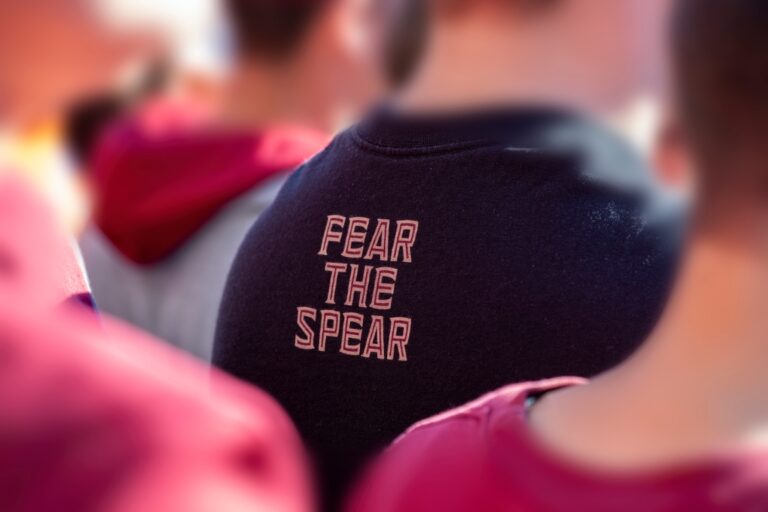Legacy Post Disclaimer
This is a #Legacy post imported from The Apalachicola Time’s previous platform. If you’re experiencing issues with this article, please email us at news@nevespublishing.com.
Is It Racist to Help Ukraine?
“Many in Mideast See Hypocrisy in Western Embrace of Ukraine,” read an Associated Press headline this week. Salon asked: “Whose Lives Really Matter?” and answered its own question in the next breath — “How
On social media, a tweet by Ayo Sogunro, a Nigerian human rights lawyer, has been shared tens of thousands of times: “Can’t get it out of my head that Europe cried about a ‘migrant crisis’ in 2015 against 1.4m refugees fleeing war in Syria and yet quickly absorbed some 2m Ukrainians within days, complete with flags and piano music. Europe never had a migrant crisis. It has a racism crisis.”
I beg to differ. In fact, Americans and Europeans have expended quite a lot of blood and treasure over the past several decades to defend or help non-whites and non-Christians. The most directly analogous case to Russia’s invasion of Ukraine was Iraq’s 1990 invasion of Kuwait. The coverage of Kuwait’s suffering at the time was heartrending, including stories about hospitals being plundered and civilians imprisoned, raped and tortured. Far from countenancing this assault on a non-white nation, the U.S. assembled an international coalition of 35 nations to drive Iraq out of Kuwait in what became the First Gulf War.
In 1992 and 1993, a civil war had devastated Somalia. A UN relief operation had run aground. President George H.W. Bush offered to send 25,000 U.S. troops to keep order so that the humanitarian aid could be distributed. What followed under the Clinton administration was the infamous “Black Hawk Down” episode in which 19 Americans were killed and 70 injured by al-Qaida-trained militants.
The U.S. took military action on behalf of Muslims six times in the past 30 years — in Kuwait, Somalia, Bosnia, Kosovo, Afghanistan and Iraq, and participated (if only from behind) in the military operation that removed Moammar Gadhafi from power when he seemed poised to destroy the city of Benghazi. So call it seven. Say what you will about the wisdom of the Iraq invasion (or the other interventions), there is no doubt that they were undertaken with the goal of freeing people from a dictator, not imposing one. Those who make facile comparisons between our wars and the Russian invasion might want to reflect that no Ukrainians are mobbing the Russian embassy in hopes of visas and no Ukrainians are hanging onto Russian jets. You don’t have to agree that the Iraq war was good policy or the long occupation of Afghanistan a wise use of resources to concede that we tried awfully hard to help both countries.
As for the different treatment of Ukrainian versus Mideast refugees, let’s remember that Europe accepted more than 1 million refugees from Syria and the U.S. accepted several thousand, despite non-trivial fears that ISIS and al-Qaida elements might be among those asking for asylum. Arguably, the strain those immigrants placed on European societies — because they did include some terrorists — led directly to the rise of far-right parties. And while we’re thinking of Syria, let’s not forget that Russia also intervened in the conflict — on the side of Bashar al-Assad, helping to reduce Aleppo and other cities to rubble and further immiserating that nation.
“Whose Lives Really Matter?” asks Salon. Well, African lives do. That’s why the United States launched PEPFAR under George W. Bush’s presidency, the largest commitment by any nation to fight a disease in history. The fund has already spent $100 billion and saved an estimated 20 million lives that would have been lost to HIV/AIDS.
So what has triggered this rash of commentary about Ukraine proving the racism of the West? On the BBC, a former Ukrainian official confessed that “It’s very emotional for me because I see European people with blue eyes and blond hair … being killed every day.” An Al Jazeera anchor said, “These are not obviously refugees trying to get away from areas in the Middle East.”
Those comments were stupid, but the reason I recited the history above is that you can’t write whole nations off for the stray remarks of a few. In fact, identification with those most like us — in appearance, culture, religion, nation, whatever — is part of human nature, and no one of any color is completely immune. Arabs are more concerned about Palestinians than about the Rohingya or Sudanese. That’s not racism, it’s just fellow feeling.
Europeans and Americans have responded to Ukraine’s plight with empathy and anger and admiration and love. And so have Kenyans and Japanese and Mexicans and Egyptians and billions more. We all have our tribal tendencies and must strive to recognize that all God’s children are of equal moral worth. But looking at our recent history, we’ve done pretty well on that score. So let’s not tar this moment of moral clarity with the racism brush.
Mona Charen is policy editor of The Bulwark and host of the “Beg to Differ” podcast. Her most recent book is “Sex Matters: How Modern Feminism Lost Touch with Science, Love, and Common Sense.” To read features by other Creators Syndicate writers and cartoonists, visit the Creators Syndicate webpage at www.creators.com.





Meet the Editor
David Adlerstein, The Apalachicola Times’ digital editor, started with the news outlet in January 2002 as a reporter.
Prior to then, David Adlerstein began as a newspaperman with a small Boston weekly, after graduating magna cum laude from Brandeis University in Waltham, Massachusetts. He later edited the weekly Bellville Times, and as business reporter for the daily Marion Star, both not far from his hometown of Columbus, Ohio.
In 1995, he moved to South Florida, and worked as a business reporter and editor of Medical Business newspaper. In Jan. 2002, he began with the Apalachicola Times, first as reporter and later as editor, and in Oct. 2020, also began editing the Port St. Joe Star.